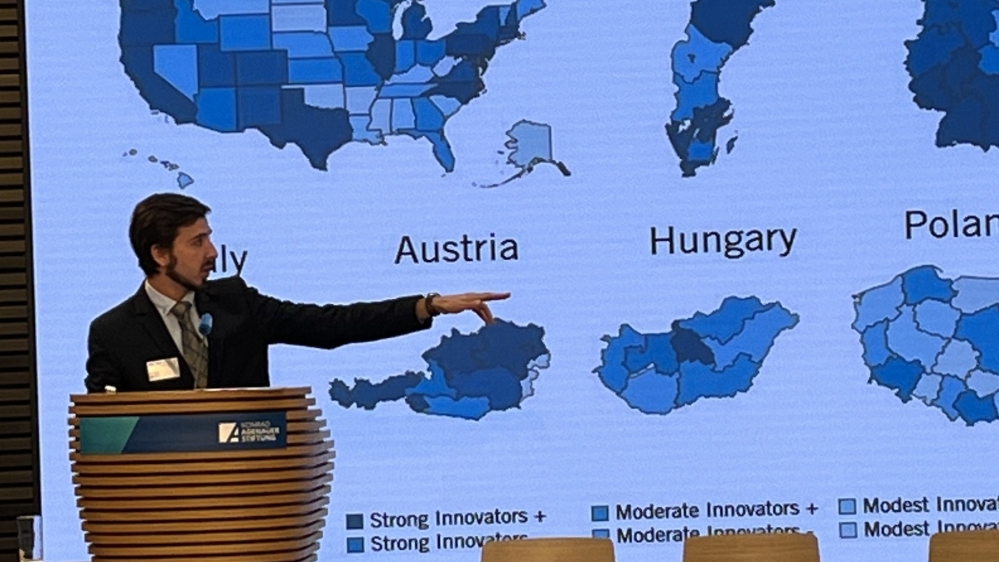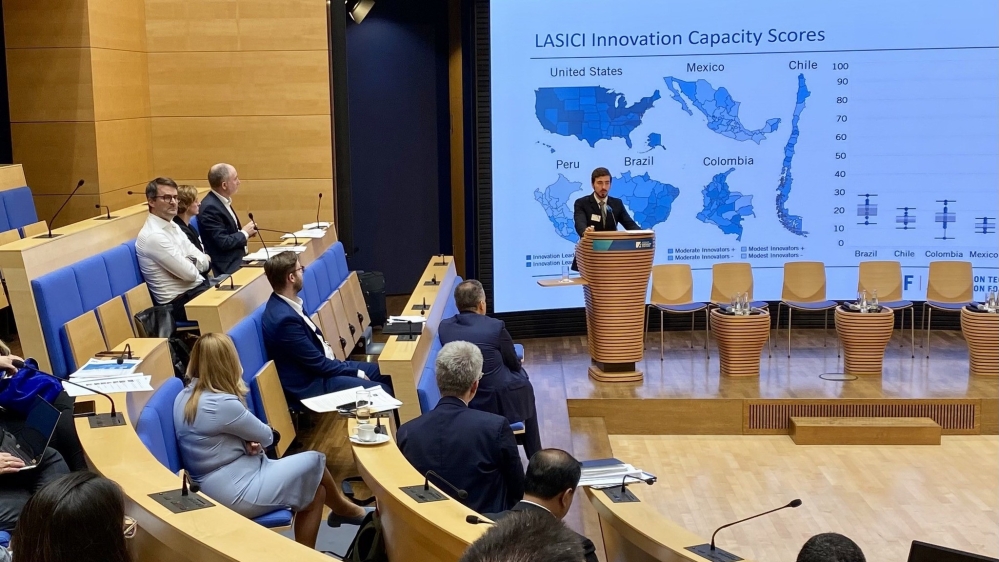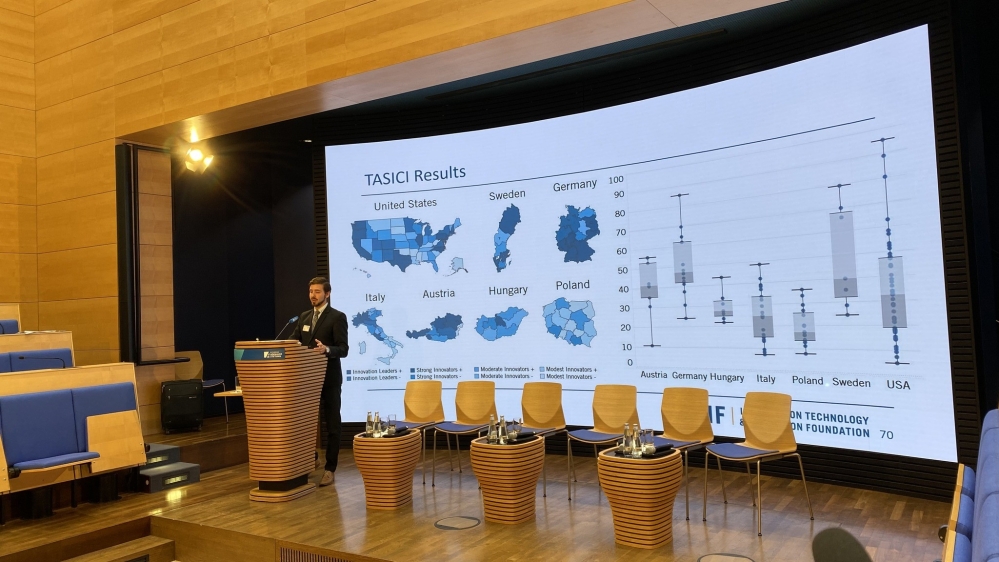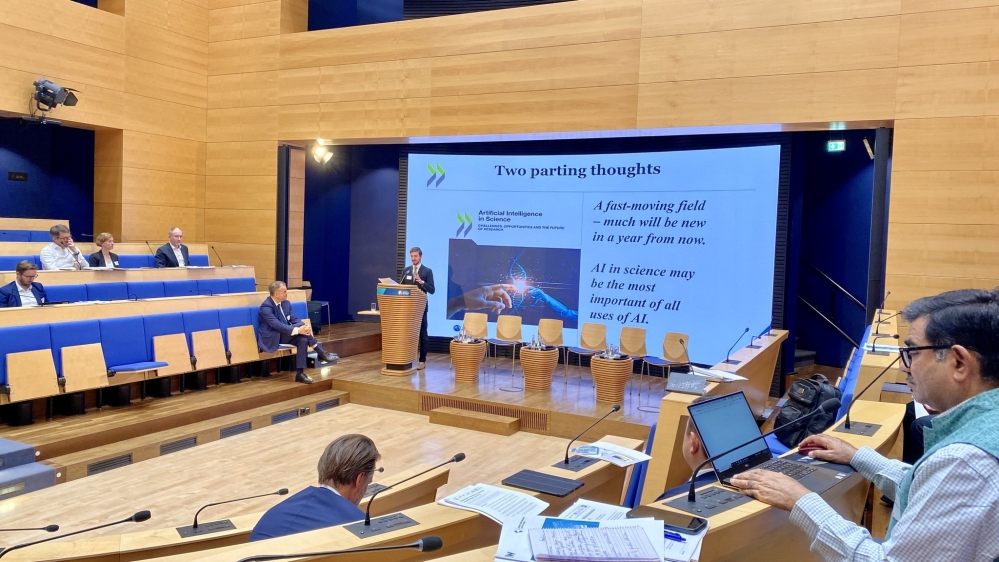Reading time: 2 minutes
Viktor Lázár showcased a study on the state of subnational innovation competitiveness, which he co-authored in collaboration with 12 research institutes, at the annual summit of the GTIPA in Berlin.
The Centre joined the GTIPA in early 2023, which was a major success for MCC. GTIPA is a global network of independent think thanks that are supporters of greater global trade liberalization and integration, deplore tradedistorting "innovation mercantilist" practices, but believe that governments can and should play important and proactive role in spurring greater innovation and productivity in their enterprises and economies.
The Summit's agenda featured engaging panel discussions covering a wide range of topics related to trade and innovation. Among these, one discussion focused on innovation competitiveness, where one of the student researchers from the Centre, Viktor Lázár, had the opportunity to present two studies he had completed after his MCC Fellowship at the Information Technology and Innovation Foundation (ITIF). Viktor received a warm reception from the audience, who appreciated the results. In these studies studies, he investigated the subnational innovation competitiveness in various regions, including Europe, Latin America, and the United States. You can find these two reports available on ITIF’s webpage: Latin American Subnational Innovation Competitiveness Index, and Transatlantic Subnational Innovation Competitiveness Index 2.0.
In addition to representatives from think tanks, industry leaders made valuable contributions to the summit. Consequently, attendees gained a deeper understanding of key sectors such as the pharmaceutical industry and Industry 4.0.
The future of globalization has become increasingly uncertain due to the ongoing COVID-19 pandemic and shifting geopolitical dynamics. One of the panels at the summit addressed this very issue, with Professor Zoltán Cséfalvay participating in the discussion. He emphasized that while researchers often concentrate on reshoring, the lesser-known trend of nearshoring also deserves attention. These insights provided attendees with a broader perspective on Central and Eastern Europe.
This event emphasized how valuable it is for MCC to be part of this network and have the opportunity to collaborate with likeminded think tanks globally to collaborate and share knowledge about policies for boosting innovation and productivity in the economy.



